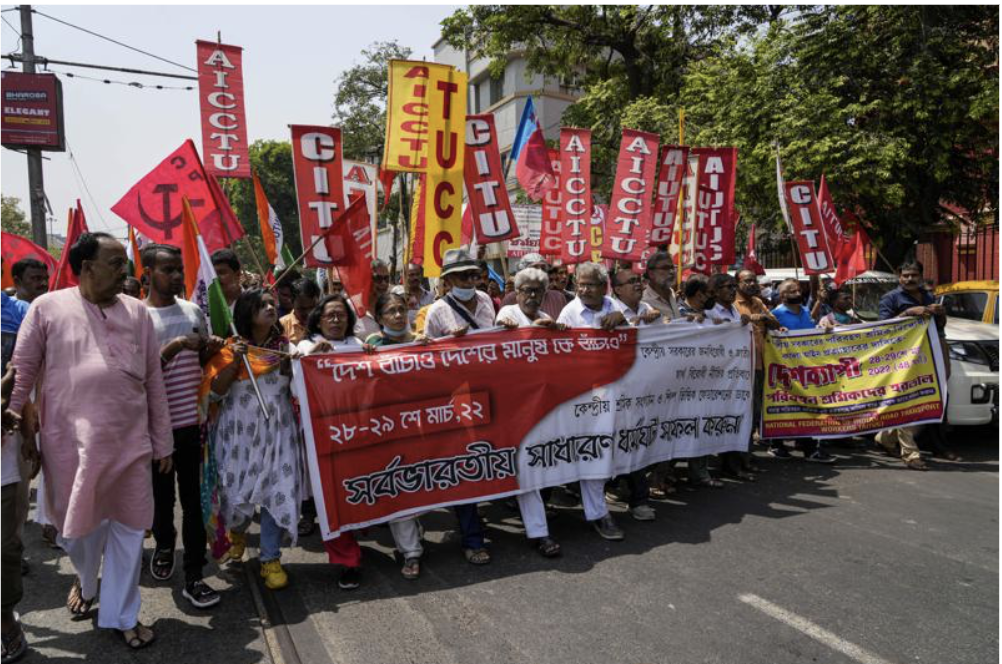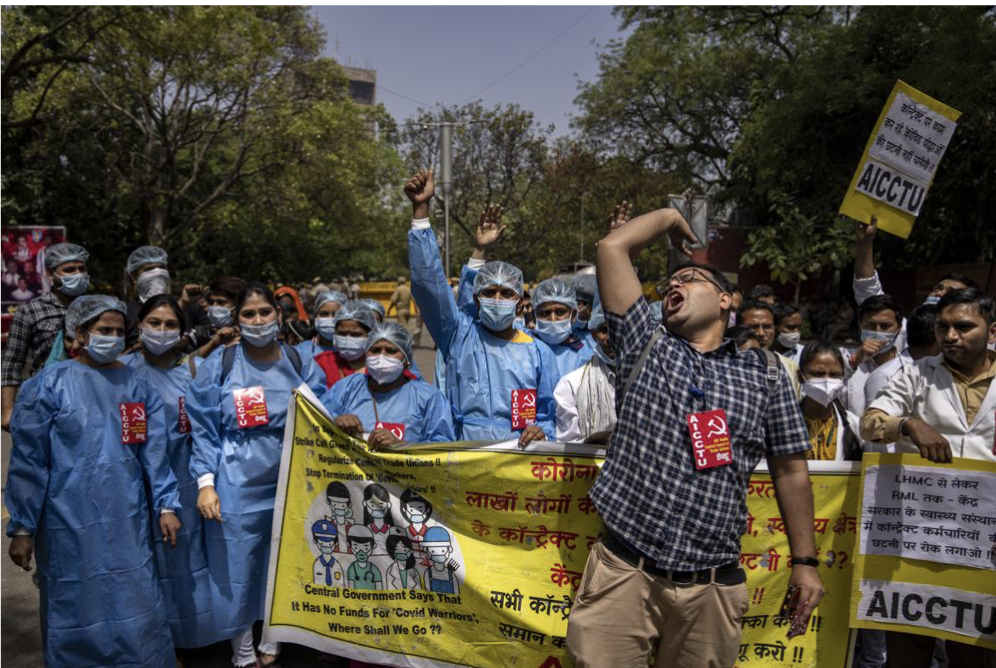Workers in India Go on Strike, Demanding Better Pay and Conditions
Indian workers gather outside asking for better pay. Photo: AP News
Millions of workers in India declared a two-day strike on Monday to demonstrate their frustration with India’s labor laws. The protest comes in response to the workers’ dissatisfaction with Indian Prime Minister Narenda Modi’s approach to economic policies, which include allowing employers to terminate their workers at will.
Labor Unions who organized the protest insisted that the Indian government raise minimum wage, provide nationwide security coverage for those in the unorganized department, and halt privatization of public sector banks. Their last demand is an objection to the government’s claim that privatizing state-owned banks could repair the banking industry, which they believe could aid in accelerating economic growth through asset sales.
The All Indian Trade Union revealed that approximately 200 million formal and informal workers had agreed to attend the protest. On March 22, a meeting was held by trade unions across the country where they came to the decision to protest against the Indian government. Protestors claimed that the government’s policies were hurting workers, farmers, and the Indian people in general.
Major cities like New Delhi and Mumbai were not affected by the strike, but some areas known to be heavily controlled by the Communist Party of India had an overwhelming number of protestors in attendance, with India’s southern coastal state of Kerala hosting the largest crowd of protestors in the country. The state’s daily life temporarily came to a halt when protestors occupied the city. Roads were blocked, impacting transportation services, while banks, stores, and factories shut down for the day.
Interestingly, the Bharatiya Mazdoor Sangh, a prominent trade union in India, refused to participate in the protest due to its affiliation with Prime Minister Modi’s Bharatiya Janata. It claimed that the strike was “politically motivated.”
Health workers claiming their contracts were not renewed by the government supported the protest. Photo: AP News
India’s economy has greatly suffered as a result of the COVID-19 pandemic. Many individuals lost their jobs and others grew accustomed to starvation, especially those who were underprivileged to begin with. A study by the Azim Premji University discovered that around 230 million Indians had to survive on as little as $5 per day. The Center for Monitoring Indian Economy discovered that only 68 percent of Indian households had one member that was working.
Worker strikes have been a common occurrence in India for the last few years. Just last year, the government had to repeal their controversial farming laws due to the immense pressure from the public. The government introduced three farmer laws that permitted private buyers to hoard agricultural produce and dictate the price of the items, making crop prices subject to market volatility and leaving the farmers vulnerable. Prior to these laws, farmers could only sell to government-authorized buyers. Farmers, who make up around 60% of the population, protested for over a year, urging the government to revoke its legislation.
However, protests have not always been entirely successful. From January 31, 2022 to earlier this month, thousands of anganwadi (childcare) workers voiced their dissatisfaction with their income. Aganwadi workers took to the streets to strike, demanding higher wages. While some sources state that the government doubled their allowance, other sources report that dozens of anganwadi workers received termination notices and were forced to cease the protests.
The Communist Party of India took to twitter to congratulate the workers on their strike, writing, “The Polit Bureau of the Communist Party of India (Marxist) congratulates the working class for the successful 48-hour general strike held on March 28-29. Millions of workers responded to the call given by 10 Central Trade Unions and various sectoral federations.” Aware of their jobs being at risk, protestors successfully concluded the two-day strikes and currently await Prime Minister Modi’s response. As of now, no government representative has commented on the protests.


